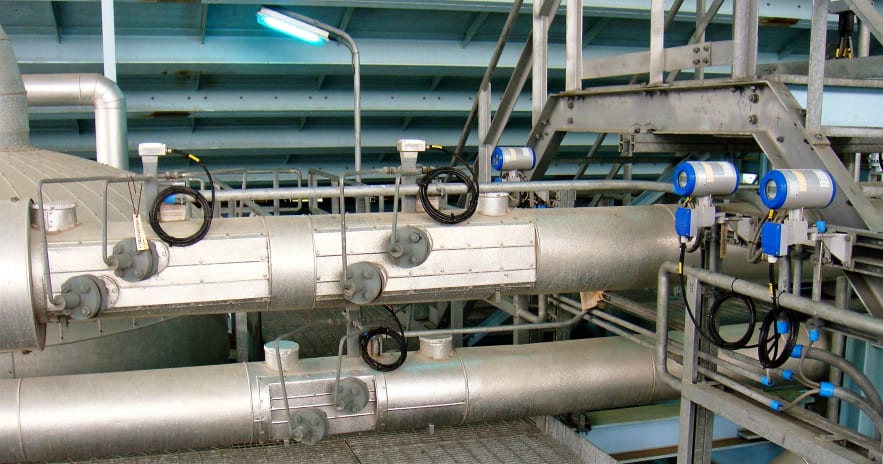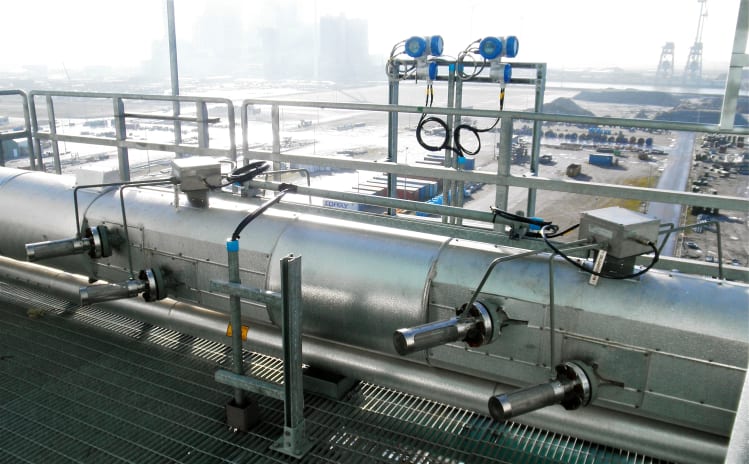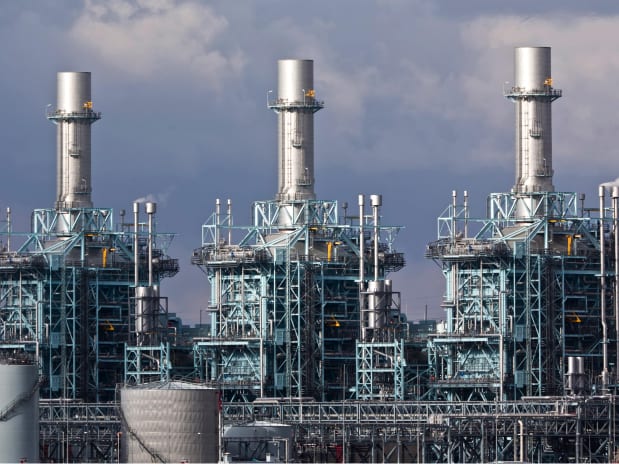Advanced condensate, feedwater and steam flow measurements at a natural gas fired Combined Cycle Power Plant (CCPP)
Application Report | Power generation
- Equipping triple pressure and reheat steam cycles with ultrasonic flowmeters
- Measuring volume flow also at high pressures and temperatures
- Strong alternative to DP flow metering due to easy design, installation and operation

Background
NEM is a globally active company in the area of power generation. One of the core activities of the Dutch company is engineering and delivery of Heat Recovery Steam Generators (HRSG). For a recently built 1300 MW natural gas fired Combined Cycle Power Plant (CCPP) in the Netherlands with 3 gas turbines, the company supplied three HRSGs. The HRSGs use the energy of the exhaust gas from the gas turbines to generate steam that in turn is used to drive 3 steam turbine generators (STGs). Each of the 3 HRSGs is of the vertical flow type. The design is based on natural circulation with three pressure levels (HP / IP / LP) and a Re-Heater (RH) system. The steam pressures of the steam systems are ‘sliding’ with the steam turbine load. The HRSG’s are designed according the applicable rules of ASME Boiler & Pressure Code Section I, VIII and B31.1.
Measurement requirements
HRSG drum level as well as steam temperature control are very critical for operators. Measurement failure, which results in a safety oriented shut down is a very costly affair. Adequate feedwater and steam flow measurements during HRSG routine start-up control are a challenge. It is especially common during start-up to experience ‘shrink and swell’ as result of pressure changes in the drums due to water density variations before reaching sliding pressure operation. Throughout a wide range of plant load operation a more accurate HP/RH attemperator spraywater flow measurement allows the HRSGs to be operated at the design values resulting in a higher efficiency.
| Mediums | Condensate | HP / IP / LP Feedwater | IP / LP Steam |
|---|---|---|---|
| Volume flow: | 700 m3/h | 600 / 125 / 60 m3/h | 12,000 / 20,000 m3/h |
| Pressure (max): | 38 bar / 551 psi |
230 / 78 / 38 bar 3336 / 1131 / 551 psi |
45/9 bar 652/ 130 psi |
| Temperature (max): | 245 °C / 473 °F |
375 / 295 / 202 °C 707 / 563 / 395 °F |
325/270 °C 617/ 518 °F |
KROHNE Solution
KROHNE delivered:
- 24 units of the OPTISONIC 4400 (UFM 530 HT) for the measurement of condensate, HP/IP feedwater and HP spraywater
- 9 units of the OPTISONIC 3400 for LP feed water and RH spraywater measurement
- 12 units of the OPTISONIC 8300 for IP/LP steam measurement
The flowmeters were supplied in a number of variations: single, double and triple beam, with integrated or remote installed signal convertor and for single or redundant measurement. The KROHNE devices were installed either with flanged connections or flangeless with butt-welded ends according to ASME B16.25. They differ in sizes, ranging from 2” (DN 50) to 14” (DN 350) with pipe schedules between 40 and 160.
Customer benefits
Differential pressure (DP) had been over decades the measuring principle of choice to master those flow measurements. Ultrasonic flowmeters, however, have meanwhile proved to be ‘the’ alternative in such demanding applications. The ultrasonic flowmeters turned out to have the following advantages:
- No obstruction of flow, therefore no pressure loss
- Larger turn down ratio
- Tolerance to pollution even during cleaning and steam blow-out
- Absence of process isolation valves and 5-way manifolds
- Absence of the impulse tubing, which may be subject to blockage
- No heat tracing system necessary to winterize the measurements
- Savings due to much reduced installation time and cost
- Simplicity compared to DP flow measurements
- Low total installation cost for contractors
- Maximum reliability due Intelligent Signal Processing (ISP) with stable measurement results and free of external disturbances
- Negligible maintenance costs
The total installation costs for the contractor as well as the total costs of ownership for the operator have thus been reduced.






